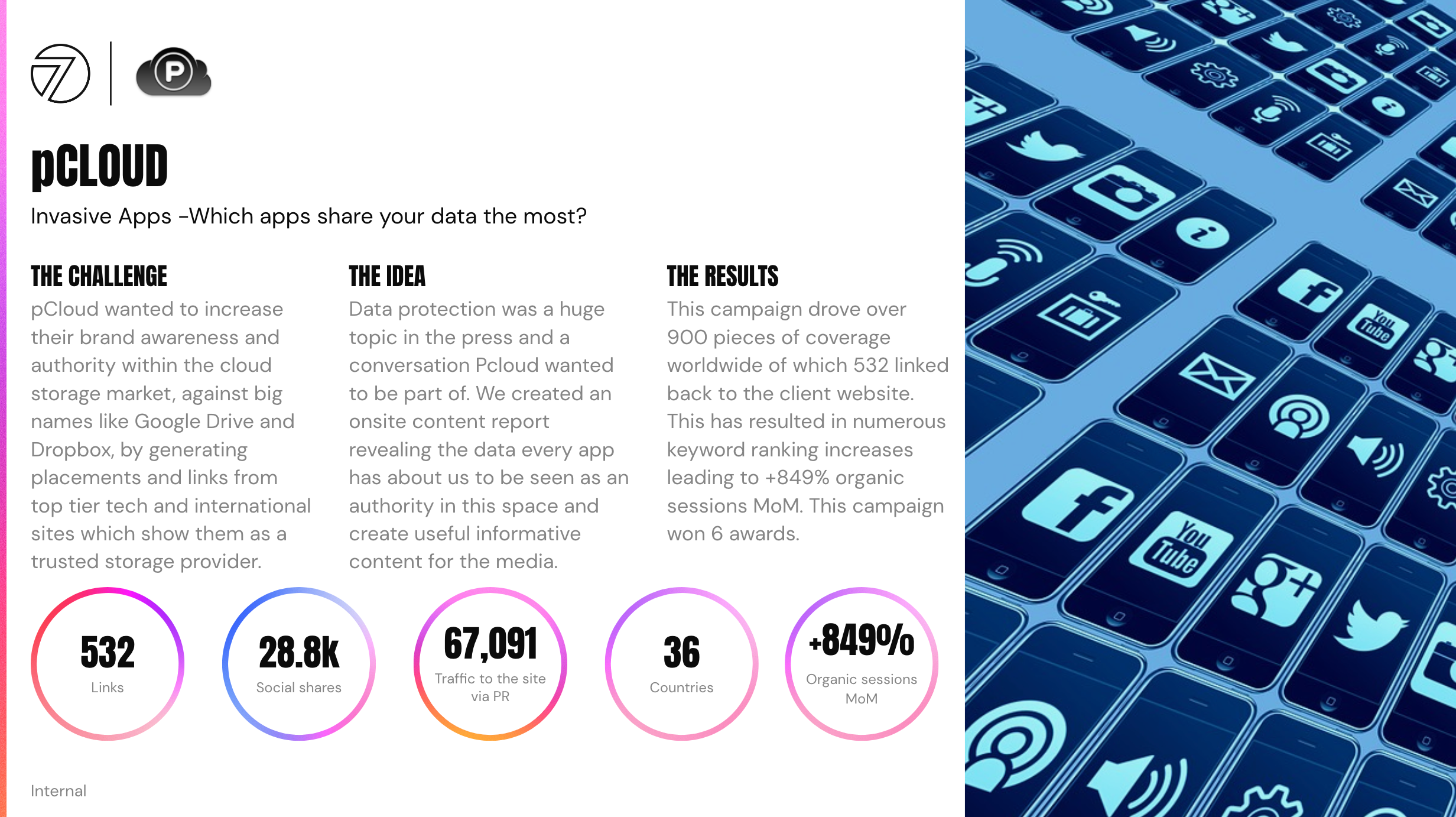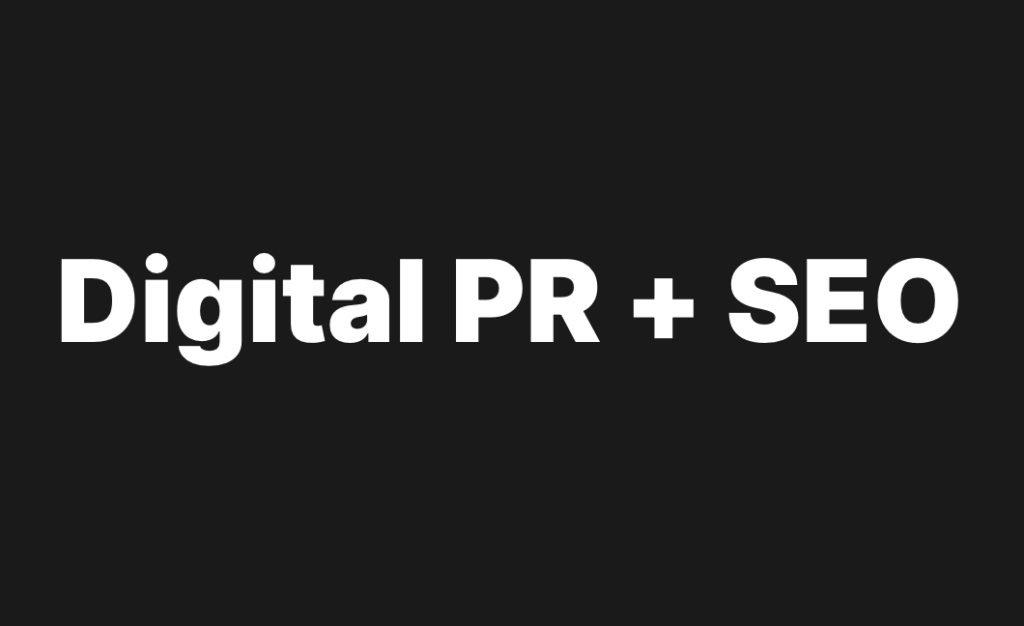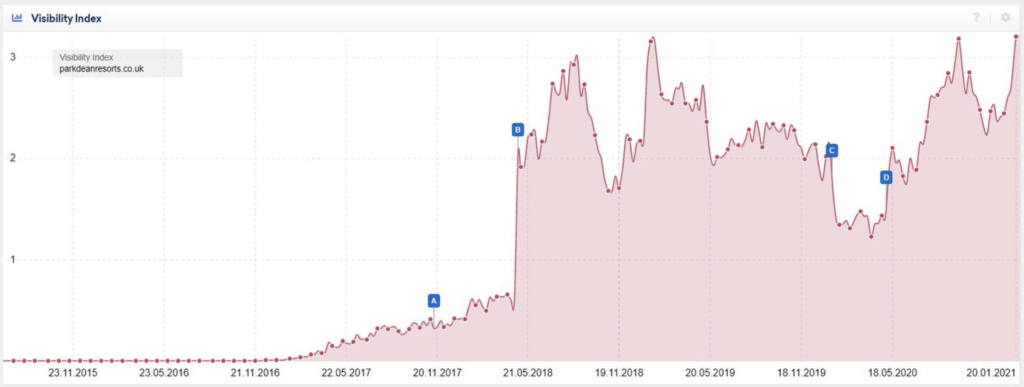What is Digital PR? The definition...


Carrie Rose Founder & CEO
6 min read
Wednesday, 10th May 2023
Digital PR is one of the fastest growing services in the marketing space right now, and for good reason. Demand for Digital PR has grown 154% since 2014, when earned media started to become a thing in SEO in order to build links according to data by Google.
Theres an emphasis now to build brand awareness and authority with not only users but Google also - and Digital PR is used as a tactic to do just that.
If you're not using Digital PR to drive media coverage, links, brand awareness, traffic to site and sales of products - then you should absolutely consider it.
This piece of work by us, for example, landed over 500 links from authorititave press, drove tens of thousands site visits and increased site traffic and rankings by 800%. The brand report landed on PC mag, Metro, CNN, CNBC and Tech Radar across 36 countries and is something we do daily for clients.

More Rise at Seven Digital PR case study examples here
And recently, Google's John Mueller just shook up the industry labelling Digital PR as more important than Technical SEO (in some cases).
As someone who runs the largest digital PR team in the world - I thought I'd help define it once and for all, its relationship with SEO and difference between traditional PR too.
So, what is Digital PR?
Digital PR is a promotional tactic used by marketers to increase a brands online presence. It is a measurable and tangible strategy to driving brand awareness, traffic to a website, links which boost organic rankings, sales, social following and engagement.
Despite forming out of SEO "originally" (more on this below), Digital PR is NOT just used for link building but a way to create content that gets seen, and shared also.
Digital PR isn't just a part of SEO. It is a part of marketing with more and more brands investing in it and traditional marketing services moving towards it also.
Content marketers use digital PR to get their content seen by millions, marketers use digital PR to get their products in front of a direct audience, founders use digital PR to create hype around their launch and be positioned as an expert, video creators use digital PR to drive views and build authority.
It is a widely used tactic, which involves applying the principles of traditional PR to promoting content/stories/brands/products online. It is used as a way of staying ahead and standing out.
Is it different to public relations?
Public relations is traditionally defined as "a strategic communication process that builds relationships between organizations and their publics".
So, how do we build relationships now? We get people to know who we are, like us, trust us, connect with us through similar interests, and recommend us, right? Well, it's the same here in digital public relations.
Carrie Rose, Founder of Rise at Seven and Digital PR Examples says "Digital PR is all about building presence, trust and authority. Not just for Google but for users, who are online. You create content and distribute it online for users to know who you are, agree with what you say, believe you're right, recommend you and buy from you. "
Digital PR is used to build links and authority to a site to rank higher in Google but also increase branded awareness and search too. Link building is still very much around but digital PR evolved to not only consider SEO, but the brand and its audience too.
How Digital PR can work for SEO?

Digital PR done right, can land you links. And I'm talking about highly authoritative, highly engaged with, LINKS. Links that actually get clicked on, that drive traffic to a piece of content on a website, drive shares and engagement to a brand and drives higher branded search. Oh and those links can drive direct sales too. Yes, REALLY! See an example here.
Those links, are produced as a result of awesome content, products, a brand, or more. Content that is relevant, engaging, useful, resourceful or different.
Those links and relevant content - can have a huge impact on organic rankings. Google see's links as a signal of trust and authority on a topic. The more of those you get, the more Google trusts you. The more links from authoritative and relevant sites talking about that topic, linking to yours - the more Google will trust you. So its about both quality and quantity. Not one or the other, but both.
The links that Digital PR gains, in conjunction with solid technical SEO and on site content, can help increase search visibility for non branded key terms too. Search is the channel that gets the traffic and sales increase, Digital PR is one of the elements that contributes to that.
However, those links don't drive drastically higher organic rankings if the relevancy is weak, if the site is struggling technically, if the content is poor. If they can work together, it's the perfect ingredient.
Digital PR and SEO working together is a beautiful mix of having a great website and everyone believing it (including Google). If everyone believes you are a credible and trustworthy brand online, but your website says otherwise (slow to use, low rated content, UX is poor, and more) - Google knows you are deceiving people and doesn't reward you.
Why Digital PR is not link building!
Link building has always been a way of deceiving others. Firstly starting off with Google and then with users. But Google is much more advanced that that now.
Link building is used to make Google think this is a website you should trust. But Digital PR uses PR tactics to make users believe this is a brand you should trust. And Google is now user first which is why Digital PR has evolved.
Where Digital PR started...
Digital PR has been around for years and years, but not what it is today. I started working in SEO in 2013 when Digital PR teams had just started to form in agencies like Branded3 and Epiphany who were once leading the way.
Essentially the Google Penguin Update in 2012 was the very beginning of this movement, changing the way people built links from one site to another in order to drive higher organic rankings. Before then, links were bought in mass, SEO's paid for links. They were often irrelevant, lacked engagement, with little strategy behind them other than to drive "LINK JUICE". Built to deceive Google.
However, the Penguin update came smashing in in 2012, penalising brands across the web, thousands (if not millions) of £££ went to waste, we disavowed the links and started again. And out of that digital PR teams were born.
Where are we at now?
The industry has been thriving for the last 3 years with a noticeable push and demand in the last 12 months specifically.
There are still many getting Digital PR wrong, but then also many leading the way.
Here's a perfect example of why its working... 1 year in and this brands visibility is the highest it's ever been.

Want to learn more about innovative ways to grow organically? Learn about how TikTok is stealing searches from Google through our Guide to TikTok SEO
